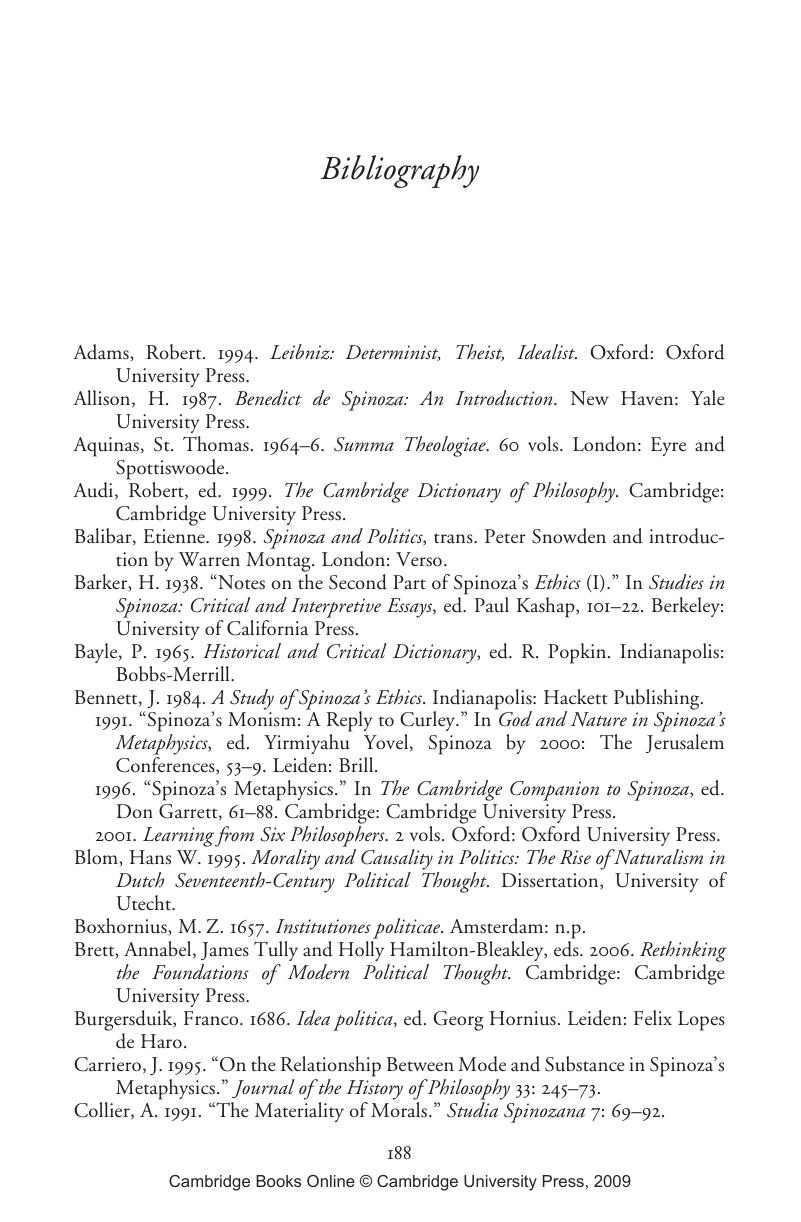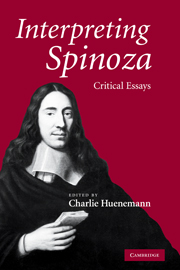Book contents
- Frontmatter
- Contents
- Notes on contributors
- Method of citation
- Introduction
- Chapter 1 Representation and consciousness in Spinoza's naturalistic theory of the imagination
- Chapter 2 Rationalism run amok: representation and the reality of emotions in Spinoza
- Chapter 3 “Whatever is, is in God”: substance and things in Spinoza's metaphysics
- Chapter 4 Necessitarianism in Spinoza and Leibniz
- Chapter 5 Epistemic autonomy in Spinoza
- Chapter 6 Spinoza and the philosophy of history
- Chapter 7 Democracy and the good life in Spinoza's philosophy
- Chapter 8 Spinoza's unstable politics of freedom
- Chapter 9 Should Spinoza have published his philosophy?
- Bibliography
- Index
- References
Bibliography
Published online by Cambridge University Press: 22 September 2009
- Frontmatter
- Contents
- Notes on contributors
- Method of citation
- Introduction
- Chapter 1 Representation and consciousness in Spinoza's naturalistic theory of the imagination
- Chapter 2 Rationalism run amok: representation and the reality of emotions in Spinoza
- Chapter 3 “Whatever is, is in God”: substance and things in Spinoza's metaphysics
- Chapter 4 Necessitarianism in Spinoza and Leibniz
- Chapter 5 Epistemic autonomy in Spinoza
- Chapter 6 Spinoza and the philosophy of history
- Chapter 7 Democracy and the good life in Spinoza's philosophy
- Chapter 8 Spinoza's unstable politics of freedom
- Chapter 9 Should Spinoza have published his philosophy?
- Bibliography
- Index
- References
Summary

- Type
- Chapter
- Information
- Interpreting SpinozaCritical Essays, pp. 188 - 193Publisher: Cambridge University PressPrint publication year: 2008



